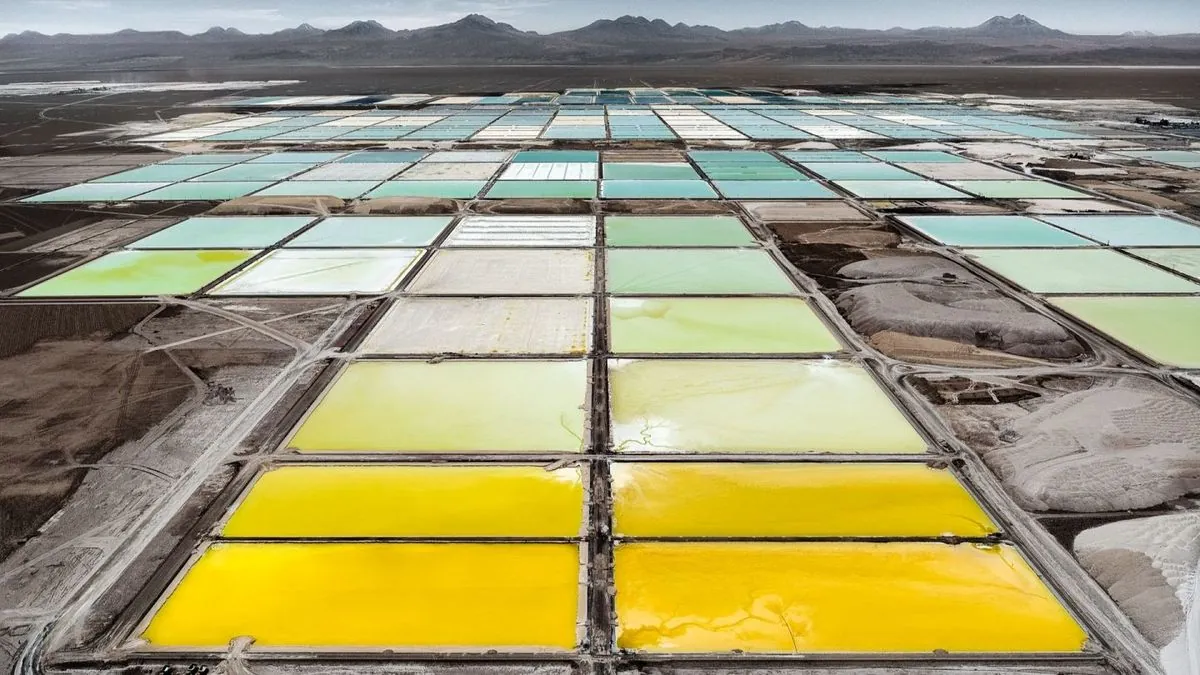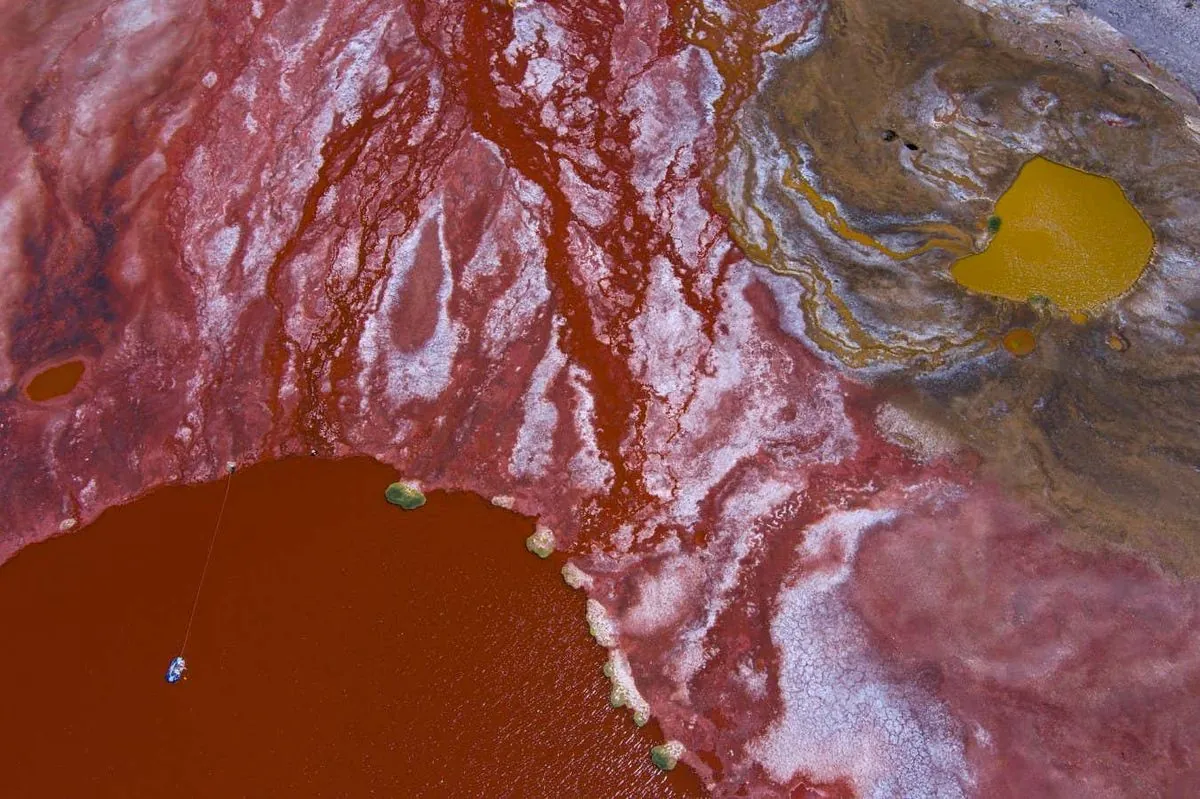Chile's Atacama Salt Flat Sinking Due to Lithium Extraction, Study Reveals
Research shows parts of Chile's Atacama salt flat sinking 1-2 cm yearly due to lithium extraction. Environmental concerns rise as Chile balances lithium production with sustainability in world's driest desert.

A recent study by the University of Chile has revealed that parts of the Atacama salt flat, located in the world's driest non-polar desert, are sinking at a rate of 1 to 2 centimeters per year due to lithium brine extraction. This finding raises concerns about the environmental impact of lithium mining in one of the planet's most unique ecosystems.
The research, published in the IEEE Transactions on Geoscience and Remote Sensing journal, utilized satellite data collected between 2020 and 2023 to detect deformations in the Earth's crust. Francisco Delgado, the lead author and researcher at the University of Chile's Department of Geology, emphasized that the subsidence is concentrated in the southwest area of the salt flat, where lithium mining operations are most intense.

The affected area spans approximately 8 kilometers north to south and 5 kilometers east to west. This region coincides with zones where lithium companies conduct their most intensive pumping activities. The study employed Interferometric synthetic-aperture radar data from Argentina's SAOCOM-1 satellite constellation to make these precise measurements.
Chile, the world's second-largest lithium producer, extracts this vital metal from the Atacama salt flat, which boasts one of the largest lithium reserves globally. The lightweight metal is crucial for electric vehicles, batteries, and the ongoing energy transition. However, the current extraction method involves evaporation, resulting in a 90% water loss to the atmosphere.
"Subsidence due to irreversible changes in permeability can be a very serious problem."
This situation has sparked concerns among native communities surrounding the Atacama. They worry that mining activities may be depleting scarce freshwater and lithium-rich brine, potentially reducing its availability for both people and wildlife. It's worth noting that the Atacama Desert receives less than 1 mm of rainfall annually in some areas, making water an incredibly precious resource.
The environmental impact of lithium extraction extends beyond water concerns. The Atacama salt flat, covering an area of approximately 3,000 square kilometers, is home to unique extremophile organisms adapted to harsh conditions. Additionally, flamingos nest in these salt flats, feeding on brine shrimp, further highlighting the delicate balance of this ecosystem.
In response to these environmental challenges, Chilean authorities have taken action. Environmental regulators have charged SQM and Albemarle, the two primary lithium producers in Chile, with possible irregularities in brine extraction practices. As a result, there's a push towards adopting Direct Lithium Extraction (DLE) technology, which promises to be more sustainable by reinjecting groundwater after extracting lithium. However, this technology is still in the testing phase.
To balance economic interests with environmental concerns, Chile is exploring new partnerships and technologies. Recently, SQM partnered with state-owned copper giant Codelco as part of Chile's efforts to expand its lithium production while aiming for more sustainable practices.
As Chile navigates the complexities of lithium production in this unique environment, the country faces the challenge of maintaining its position in the global lithium market while preserving the Atacama's fragile ecosystem. The desert's significance extends beyond its mineral wealth, as it hosts some of the world's largest astronomical observatories and has been used for Mars expedition simulations due to its similar conditions.
The ongoing research and regulatory actions in the Atacama serve as a crucial case study for sustainable resource extraction in sensitive environments. As the world increasingly relies on lithium for clean energy technologies, the balance between economic development and environmental preservation becomes ever more critical.


































